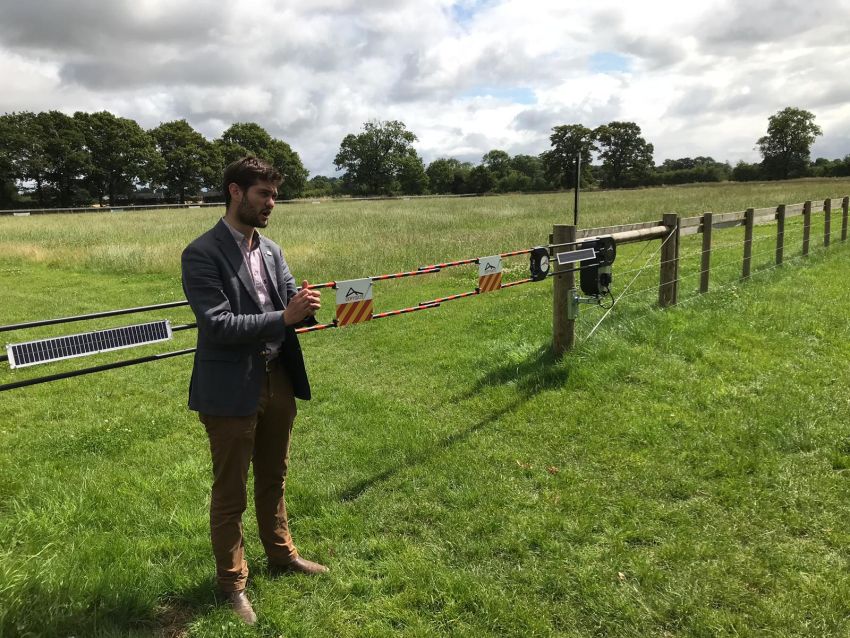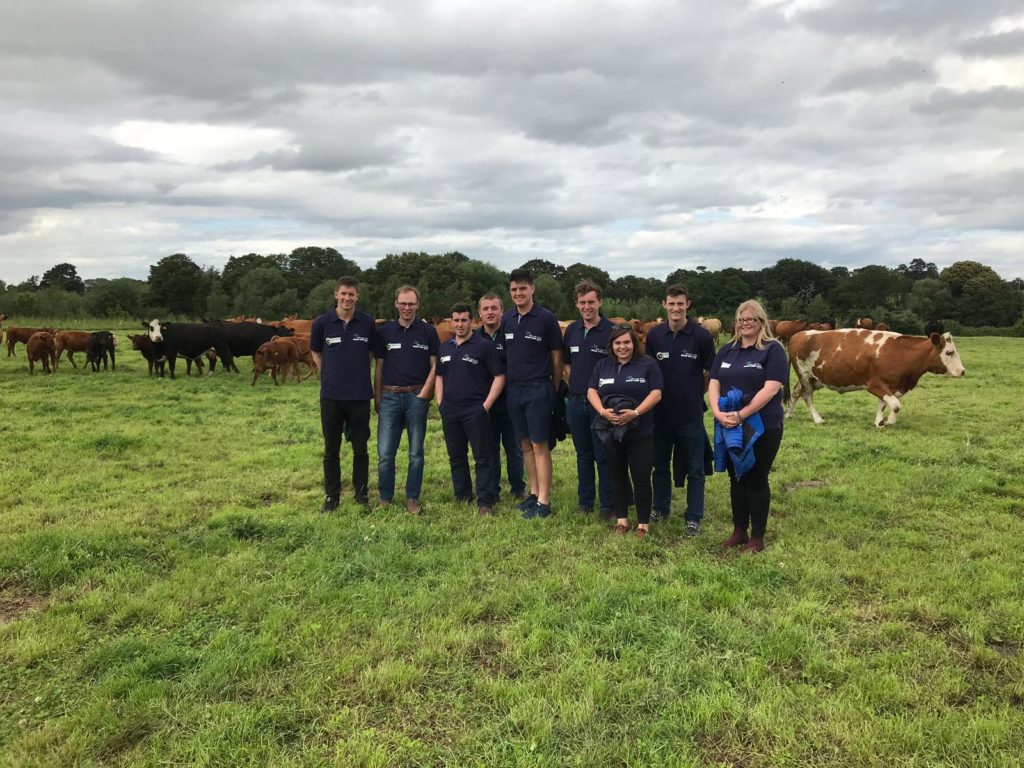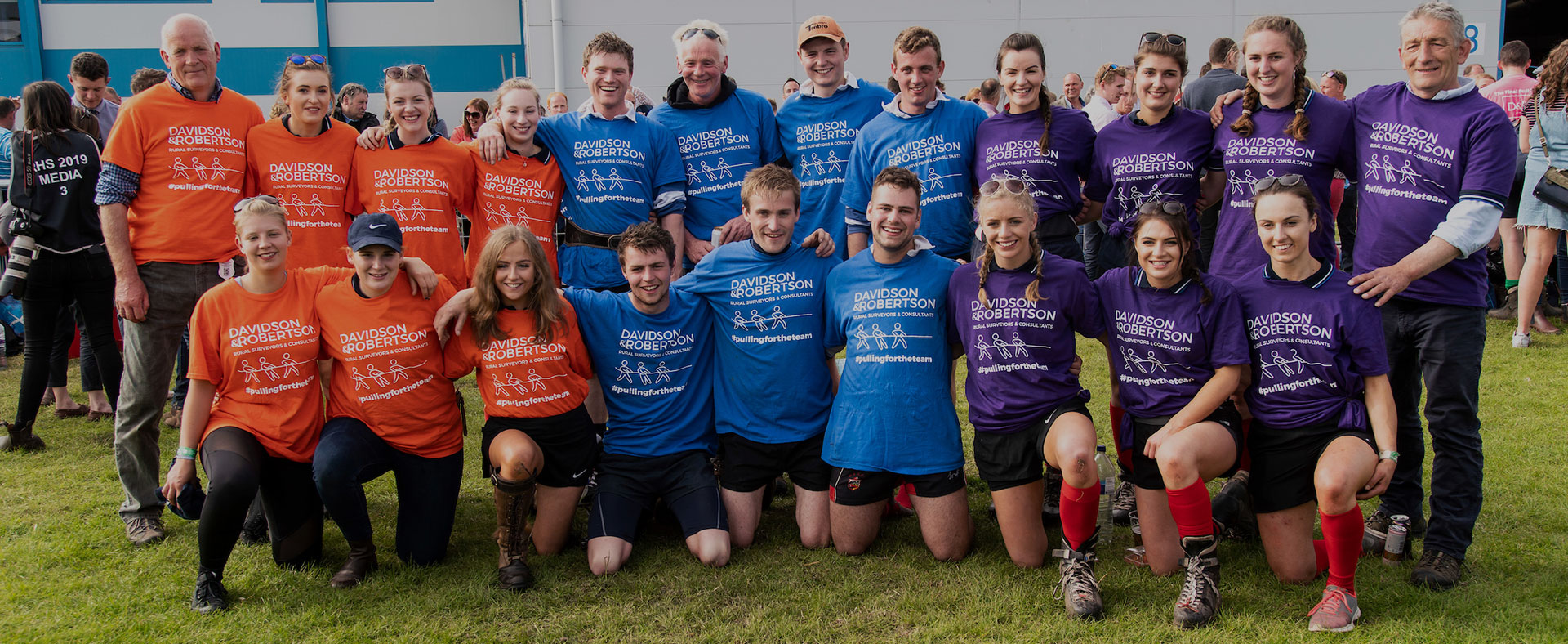
31 Jul AGRI Affairs Summer Road Trip Day 2: Lucy McClymont and Murray Stephen Report on Hands Free Farming and Diversification Success
The 2019 SAYFC Agri Affairs study tour took the form of a road-trip through the West of England and Wales. From handsfree farming to coffee milk, from performance recorded ewes to 2000 cows all seven of our visits fitted with the our theme “the road to success”
The following reports provide a brief summary of the interesting, inspiring and cutting edge businesses we were very grateful to have been allowed to visit.
On Saturday morning the group visited Harper Adams University where we were greeted by Kit Franklin who is a senior lecturer in Agriculture Engineering. From the beginning the group were amazed by the facilities on campus. Kit explained his background and interests where he has spent 11 years at Harper. He specialises in Hands Free Hectare and Ag automation. The university has invested in its engineering department where they believe they are the leaders in agricultural technology. They also invest in their students and ensure they are industry ready when they graduate.
Key Points
- Continuing investment in research and development
- Researching drones spraying fields where they have observed the success of this in China. Currently spraying from drones is illegal in this country however Kit believes it will be something that will be used in the future. The idea came from China where there are up to 5,000 drones spraying daily where one 15L can cover 1 hectare. The price of a drone is around £8,000!
- Traffic and tillage trial where they are investigating field traffic management. This has been running since 2011 and it allows research to be carried out on soil conditions, crop development and yield.
- Technology on site where the 3D printer allows plastic prototypes to be checked before an investment is made in parts etc.
- The students follow a programme of learning how to build a remote control car to drive itself then eventually learning to make a tractor drive on its own.
- Probably the most interesting part of the morning where Kit explained the Hands Free Hectare project. This project started in 2017 where Kit and his team decided to study automated machines growing the first arable crop remotely, without operators in the driving seats or agronomists on the ground. The tractor used in the trial is controlled by GPS where there are cameras, sensors and lasers which can detect obstacles. This type of tractor was certainly something none of us had seen before! Kit firmly believes that robotic machines in agriculture is the future and something that we all must look at. The tractor with all the equipment on board costs around £35,000.
- Following on from this Kit explained they are now beginning to trial a hands free farm with 35 hectares beginning this year which is again demonstrating their research into the industry. This again will be something that we would all love to witness!
Final Point
The whole group were fascinated by Kit’s talk and tour he gave us where we all learnt something new! He had one simple message which we all must adopt and that was none of us should be standing still, we should be embracing technology in our careers.
Lucy McClymont
Afternoon of day 2 saw the group visit Cherrington Farm, a 400 acre mixed farming enterprise comprising of arable, a suckler herd of 300 stabiliser cattle on a rotational grazing system, a wood chip business and have recently just started rearing insects for the protein market. And off farm is a family run butcher shop.
The group was met with Nick Crowe, the 25 year old son of the farm owner who now acts as farm manager. He explained that the wood chip business began 4 years ago to supply various grades of dry wood chips to the biomass boiler market as well as an alternative bedding option for the poultry industry. Although in its early days the insect farm uses the residual heat from the burners to rear the insects to supply a cheap source of protein for fisheries, although they’re looking to expand this business further and start supply feed companies.
The group then had a tour of the farm seeing the various mobs of their stabiliser herd. The cattle are kept outdoors all year round, even calving outdoor, as they adopted a New Zealand style grazing system and a 100% grass fed diet. Admittedly he said that the calves take longer to finish, however the pence per kilo was far greater and with no feeding costs means they make a greater profit at the end of the day. Herd health was also of paramount importance to them operating a strict culling policy for any difficult animals. Cattle are moved to a fresh paddock every 2-3 days to not only provide a fresh bite for them, but also to get them used humans and being moved. A small flock of 80 Zwartbles is also run on the farm to a similar system.
The group were thoroughly impressed with not only the enterprise, but also with Nick’s enthusiasm and willingness to try new ideas. The group were very interested to learn that alongside 2 neighbouring farms run a small cooperative type system of implement and work sharing to benefit all concerned.
Murray Stephen


